I work on a Jetty web app that was running on Java 16. I tried to upgrade it to Java 17 but there were critical performance issues caused entirely by one call to parallelStream().
The only changes are the Java version bump from 16 to 17, --add-opens java.base/java.lang=ALL-UNNAMED --add-opens java.base/java.util=ALL-UNNAMED and the runtime bump from openjdk:16.0.1-jdk-oraclelinux8 to openjdk:17.0.1-jdk-oraclelinux8.
We managed to obtain a thread dump and it contains many of these:
"qtp1368594774-200" #200 prio=5 os_prio=0 cpu=475.94ms elapsed=7189.65s tid=0x00007fd49c50cc10 nid=0xd1 waiting on condition [0x00007fd48fef7000]
java.lang.Thread.State: WAITING (parking)
at jdk.internal.misc.Unsafe.park(java.base@17.0.1/Native Method)
- parking to wait for <0x00000007b73439a8> (a java.util.stream.ReduceOps$ReduceTask)
at java.util.concurrent.locks.LockSupport.park(java.base@17.0.1/LockSupport.java:341)
at java.util.concurrent.ForkJoinTask.awaitDone(java.base@17.0.1/ForkJoinTask.java:468)
at java.util.concurrent.ForkJoinTask.invoke(java.base@17.0.1/ForkJoinTask.java:687)
at java.util.stream.ReduceOps$ReduceOp.evaluateParallel(java.base@17.0.1/ReduceOps.java:927)
at java.util.stream.AbstractPipeline.evaluate(java.base@17.0.1/AbstractPipeline.java:233)
at java.util.stream.ReferencePipeline.collect(java.base@17.0.1/ReferencePipeline.java:682)
at com.stackoverflowexample.aMethodThatDoesBlockingIOUsingParallelStream()
The code that is causing the issue is something like:
list.parallelStream()
.map(this::callRestServiceToGetSomeData)
.collect(Collectors.toUnmodifiableList());
This image shows thread use before upgrading from jdk16 (LHS), upgrading to jdk17 (the huge spike in the middle), then removing the call to parallelStream() still on jdk17 (RHS):
What change in Java 17 (openjdk-17.0.1_linux-x64_bin.tar.gz) has caused this?


